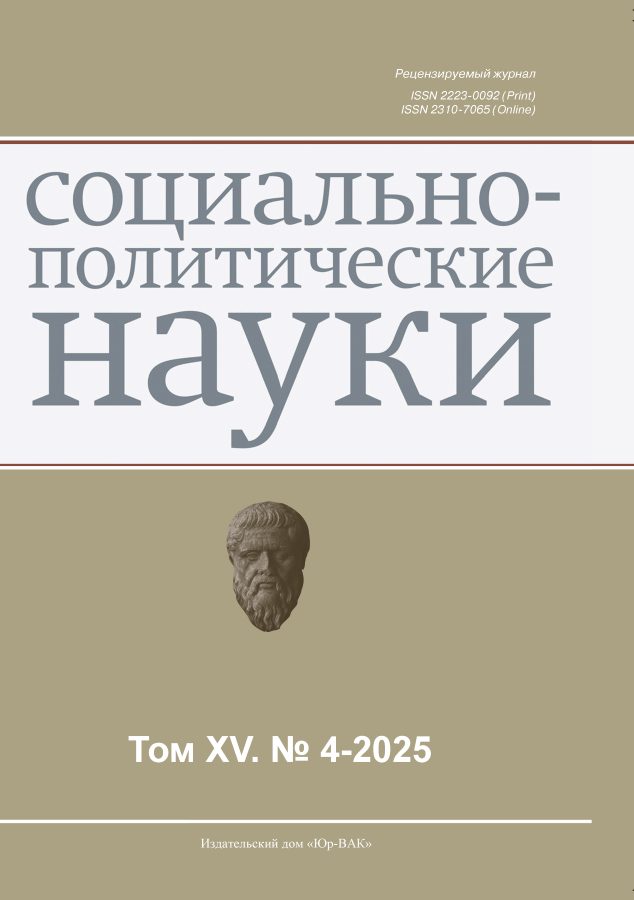Sanctions policy in the activities of international organizations
- Authors: Soldatov R.G.1,2
-
Affiliations:
- St. Petersburg State University (SPbSU)
- Financial University under the Government of the Russian Federation
- Issue: Vol 15, No 4 (2025)
- Pages: 199-205
- Section: International Relations, Global and Regional Studies
- URL: https://journals.eco-vector.com/2223-0092/article/view/693258
- DOI: https://doi.org/10.33693/2223-0092-2025-15-4-199-205
- EDN: https://elibrary.ru/YUCLZM
- ID: 693258
Cite item
Abstract
In exploring modern world politics, researchers are increasingly addressing the issue of sanctions. In this vein, it should be noted that the role of international organizations in the formation and implementation of sanctions policy. They are in charge of coordinating the efforts of various states and supporting the implementation of decisions taken at the international level. The author in his work considers the most influential international institutions involved in the process of applying sanctions. For the analysis, the most significant international structures that actively use sanctions instruments were selected, namely: United Nations (UN), European Union (EU), North Atlantic Treaty Organization (NATO) and World Trade Organization (WTO). The purpose of the article is to assess the sanctions policy in the activities of international organizations using the example of the UN, EU, NATO and WTO. As a result, the author, having determined the main features of the studied organizations, comes to the conclusion that issues of the effectiveness of international sanctions remain an important issue on the agenda of international organizations. It is also quite obvious that sanctions will continue to be one of the main instruments of the foreign policy strategy of international organizations and many states. The impact of their actions will undoubtedly vary depending on the specific situation, and they will require careful analysis and coordination of efforts to achieve their goals, although strong politicization in the application of sanctions should also be noted.
Full Text
About the authors
Robert G. Soldatov
St. Petersburg State University (SPbSU); Financial University under the Government of the Russian Federation
Author for correspondence.
Email: soldatovrobert1@gmail.com
SPIN-code: 1797-1810
applicant of Cand. Sci. (Polit.), senior lecturer, Department of Legal Regulation of Economic Activity
Russian Federation, Saint Petersburg; MoscowReferences
- Babkina M.A. The use of international legal cooperation in the investigation of terrorist crimes. Bulletin of Science. 2025. Vol. 3. No. 5. Pp. 351–358. (In Rus.)
- Romanova T. The evolution of the discourse on sovereignty and sanctions and its significance for the EU’s external relations. International Processes. 2024. Vol. 22. No. 1. Pp. 22–41. (In Rus.)
- Smeets M. Incompatible goals: Economic sanctions and the WTO. Russia in Global Politics. 2014. Vol. 12. No. 4. Pp. 130–142.
- Soldatov R.G. Sanctions policy in the world: Evolution of political discourse. Sociopolitical Sciences. 2024. Vol. 14. No. 4. Pp. 124–130. (In Rus.). doi: 10.33693/2223-0092-2024-14-4-124-130. EDN: PPJMMS.
- Elliott K.A. Assessing UN sanctions after the Cold War: New and evolving standards of measurement. International Journal. 2010. Vol. 65. No. 1. Рp. 85–97.
Supplementary files









